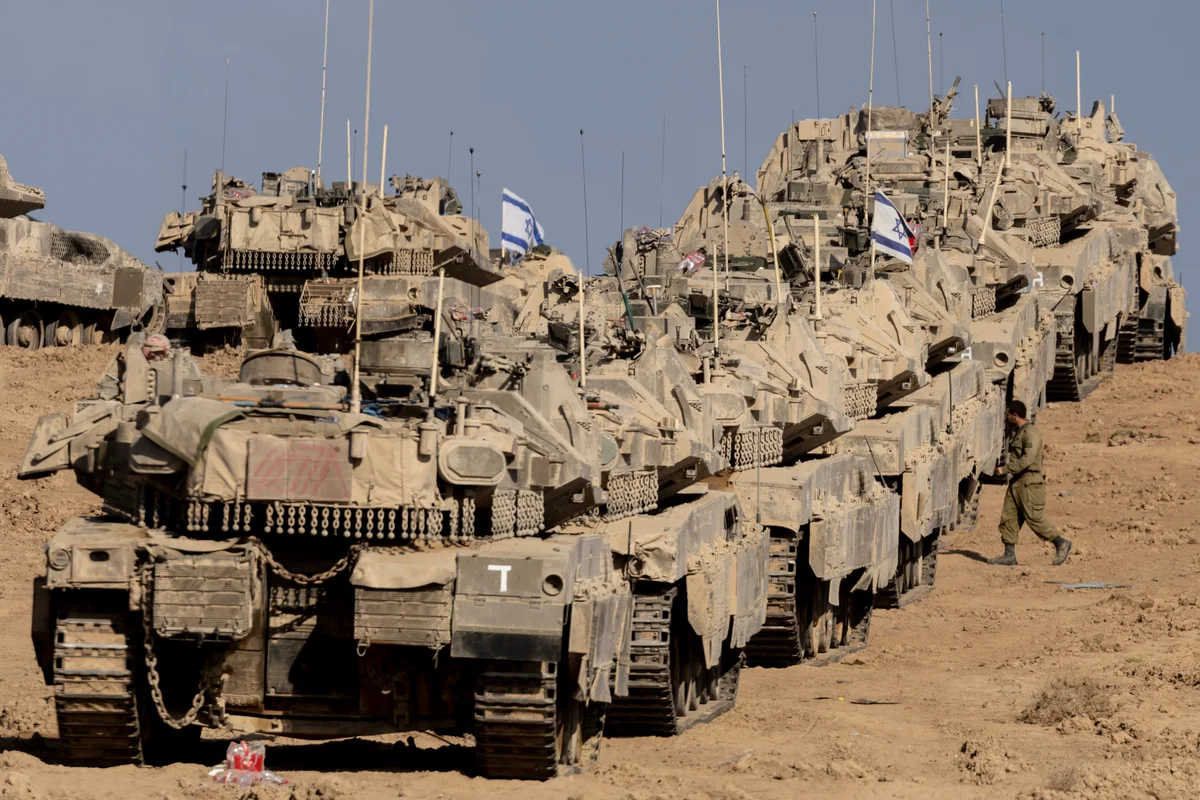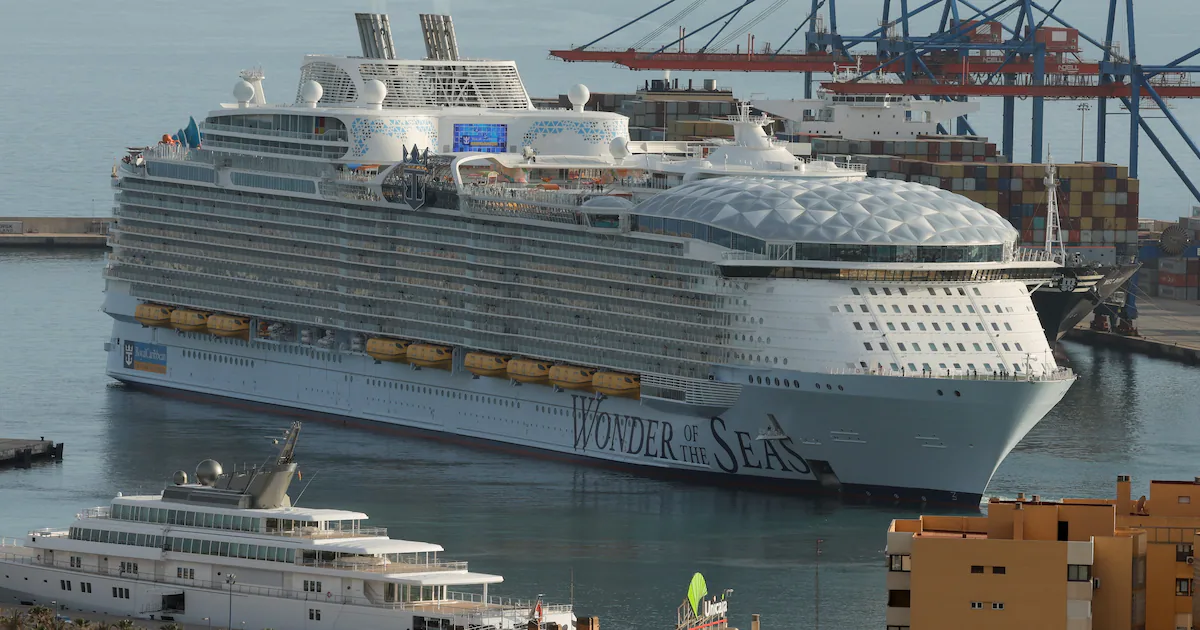By Nedal Hamdouna
Copyright independent

Panicked families scrambling to flee Israel’s wave of strikes on Gaza City describe dodging “giant robot bombs” as Israeli forces pushed deeper into the city’s urban centres.
The Israeli military advanced for the second day of its widely condemned offensive into the strip’s largest city, which the military said their tanks and planes had struck over 150 times over the last few days.
Relentless tank and air strikes in the last 24 hours have killed at least 16 people and hit Gaza’s only specialist hospital for children, according to Palestinian health authorities who say the death toll in the enclave has reached nearly 65,000 since October 2023.
On the ground, families trapped in Gaza City say they are having to navigate terrifying remotely-operated, bomb-packed armoured cars: rigged vehicles that the Israeli media claims its military is now relying on as part of the current ground offensive.
“Today we woke up to terrifying sounds from these massive robots bombs exploding in Gaza’s neighbourhoods and streets, causing massive destruction,” said Hussein Mansour, 55, who has stayed in Gaza City praying for a ceasefire, as it was too expensive to evacuate his wife and child.
The Palestinian authorities estimate that hundreds of thousands of people could still be in Gaza City despite Israel issuing mass evacuation orders: many cannot afford the $600 it now costs to rent a vehicle and get south.
“These robot bombs usually explode at 4am, are extremely terrifying for everyone, especially children,” he added.
Jenin Raffia, 23, a mother looking after a family of eight, also described the unmanned vehicles saying “20 booby-trapped robots” had been remotely detonated in the neighbourhood where she was sheltering in Gaza, wiping out swathes of area.
She said the main road out of Gaza City along the coast was too packed with cars, trucks and donkey carts to get out.
“We’ve been trying to leave Gaza City for over a week by any means of transportation, whether by car or tractor, but there are currently no available means,” she added in desperation.
“One driver told us that our turn would come in three days. The situation is catastrophic.”
Israeli media has reported that Israel’s Southern Command had started using outdated M113 models of Armoured Personnel Carriers that they then rig with explosives and make remotely operational, in a bid to reduce soldier casualties as numbers have soared over the last two years.
The M113 model has reportedly been used as the ageing military hardware has faced mounting public criticism for its vulnerability to enemy fire.
Security sources speaking to Israel’s Maariv newspaper said the military refers to the creations as “suicide APCs” and their main use is for taking out large buildings. They are then loaded with several tonnes of explosives, so that just one explosion can create “an extremely powerful shock wave”. The Jerusalem Post reported that the Israeli military had now tripled the use of bomb-laced APCS in its current offensive.
The Independent asked the military for comment but has yet to receive a reply.
Israeli Prime Minister Benjamin Netanyahu has pushed ahead with his controversial offensive, despite condemnation from world leaders who are increasingly calling for a ceasefire and hostage release deal. That only increased after a United Nations investigation concluded this week for the first time that Israel has committed genocide in Gaza.
On Wednesday, Pope Leo – the first American pontiff – called for a ceasefire in his weekly general audience in the Vatican. The European Commission also proposed suspending free-trade arrangements on Israeli goods, although the measure does not yet have sufficient support among the EU member countries to pass.
There has also been mounting pressure from within Israel, where the largest group representing the families of the hostages staged a sit-in outside Netanyahu’s residence in Jerusalem. More than 250 people were seized by Hamas militants, who also killed 1,000 people during their bloody 7 October 2023 raid on southern Israel.
At least 48 remain in Gaza, although less than half are believed to still be alive.
Outside Netanyahu’s residence, family members with megaphones begged the prime minister to agree to an immediate hostage deal, fearing the Gaza City offensive will be a death sentence to their relatives .
Macabit Mayer, aunt of Gali and Ziv Berman, 28-year-old twins who were sized from Kafr Aza, said in comments addressed to Netanyahu: “All day long, you boast about killing and destruction. Bringing down buildings in Gaza – who are you bringing these buildings down on?
“Could it be that you are bringing these buildings down right now on Gali and Ziv and all the souls left there – the living and the deceased?”
Other family members begged US President Donald Trump, Israel’s biggest ally and largest supplier of weapons, to intervene.
Trump landed in the UK on Wednesday, where Sir Keir Starmer is under mounting pressure to raise the issue of Israel’s new offensive during his second UK state visit.
Liberal Democrat leader Sir Ed Davey used the president’s arrival to call for action on the escalating situation in Gaza, saying he was boycotting a Windsor Castle dinner with the US president in protest.
“My view is that President Trump is the one person in the world who can stop this humanitarian catastrophe. He can ring up Prime Minister Netanyahu and stop the fighting and the killing and get food in, and he can ring up the Qatari government and governments in the Gulf and get them to force Hamas to release the hostages.”
Medical Aid for Palestinians organisation said the Israeli military attacked Al-Rantisi Children’s Hospital in Gaza City – Gaza’s only specialist hospital for children, which provides lifesaving care for children with cancer, kidney failure, respiratory and digestive diseases.
The military announced on Wednesday that it would open a second route out of Gaza City down the centre of the Strip, as the only current road along the coast is blocked with people fleeing.
But trapped families said they were too scared to take the road through Israeli military positions.
“I definitely won’t cross through Salah al-Din, as it’s located in a red zone that’s already classified as dangerous,” said Mohammed Azzam, 38, displaced from Jabalia, father of two..
“It’s a scary feeling for everyone, especially when you cross with your children and family in the presence of the Israeli army.”



